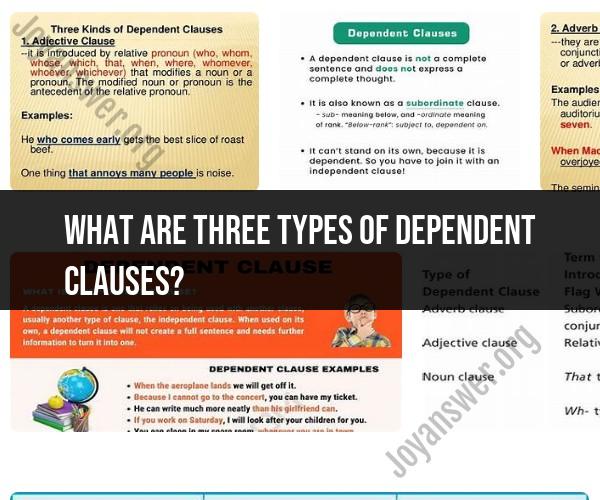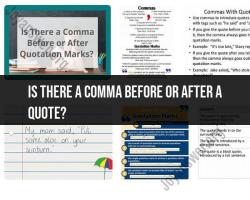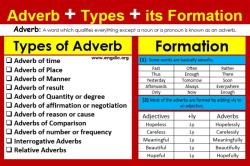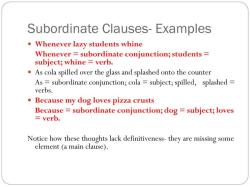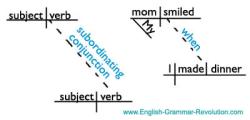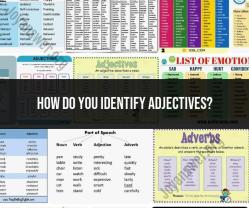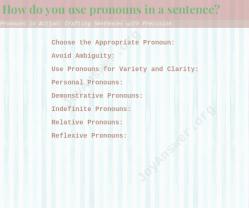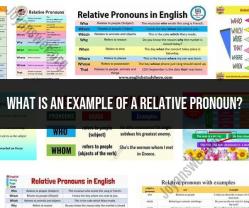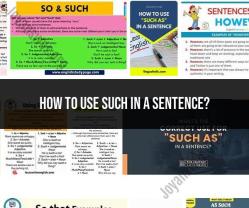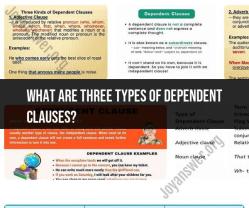What are three types of dependent clauses?
Dependent clauses, also known as subordinate clauses, are groups of words that have a subject and a verb but cannot stand alone as complete sentences. They rely on independent clauses (complete sentences) to make sense. There are several types of dependent clauses, but here are three common ones:
Adjective Clauses (Relative Clauses):
- These clauses provide additional information about a noun in the main (independent) clause.
- They begin with relative pronouns like "who," "whom," "whose," "which," or "that."
- Example: "The book that I borrowed from the library is fascinating."
- In this example, "that I borrowed from the library" is the adjective clause that provides more information about the noun "book."
Adverbial Clauses:
- Adverbial clauses modify verbs, adjectives, adverbs, or entire clauses in the main sentence to provide information about time, place, manner, purpose, condition, or reason.
- They often begin with subordinating conjunctions like "when," "where," "since," "although," "because," "if," etc.
- Example: "She stayed inside because it was raining."
- In this example, "because it was raining" is the adverbial clause that provides the reason for her staying inside.
Noun Clauses:
- Noun clauses function as nouns in a sentence. They can serve as subjects, objects, or complements.
- They often begin with words like "that," "whether," "who," "what," or "how."
- Example: "I don't know what she wants."
- In this example, "what she wants" is the noun clause, serving as the direct object of the verb "know."
These are just three types of dependent clauses, and there are more variations and subtypes depending on the specific role and function of the clause within a sentence. Understanding how to use dependent clauses can enhance your writing by adding complexity and nuance to your sentences.
Exploring Three Types of Dependent Clauses in Grammar
Dependent clauses, also known as subordinate clauses, are groups of words that contain a subject and a verb, but cannot stand alone as a complete thought. They must be joined with an independent clause to form a complete sentence.
There are three types of dependent clauses:
- Noun clauses: Noun clauses function as nouns in a sentence. They can be the subject, object, or complement of a sentence.
- Examples:
- Subject: What you said surprised me.
- Object: I know what she said.
- Complement: Her main goal is to succeed.
- Examples:
- Adjective clauses: Adjective clauses modify nouns or pronouns. They are introduced by relative pronouns (such as who, which, that) or relative adverbs (such as when, where, why).
- Examples:
- The dog that barked all night kept me awake.
- The house where I grew up is for sale.
- Examples:
- Adverb clauses: Adverb clauses modify verbs, adjectives, or other adverbs. They are introduced by subordinating conjunctions (such as because, although, until, after).
- Examples:
- Because it was raining, we stayed inside.
- Although he was tired, he kept going.
- After we finished dinner, we watched a movie.
- Examples:
Recognizing and Utilizing Different Dependent Clause Varieties
Dependent clauses can be used in a variety of ways to add complexity and interest to your writing. Here are a few examples:
- To provide more information about a noun or pronoun:
- The student who won the award is giving a speech today.
- To explain why something happened:
- I went to bed early because I was tired.
- To compare or contrast two things:
- The new computer is faster than the old one.
- To express a condition:
- If you finish your homework, you can watch TV.
- To express time, place, or manner:
- When I get home, I will call you.
- The restaurant where we ate was delicious.
- She did her homework carefully.
Understanding Dependent Clauses in Sentence Structures
Dependent clauses can be used to create a variety of sentence structures, including:
- Simple sentences: A simple sentence contains one independent clause.
- Example: The dog barked.
- Compound sentences: A compound sentence contains two independent clauses joined by a coordinating conjunction (such as and, but, or).
- Example: The dog barked, and the cat ran away.
- Complex sentences: A complex sentence contains one independent clause and one dependent clause.
- Example: The dog barked because the cat ran away.
- Compound-complex sentences: A compound-complex sentence contains two independent clauses and at least one dependent clause.
- Example: The dog barked because the cat ran away, and the children laughed.
Conclusion
Dependent clauses are a powerful tool for writers. By understanding the different types of dependent clauses and how to use them effectively, you can improve your writing skills and produce more complex and interesting sentences.
